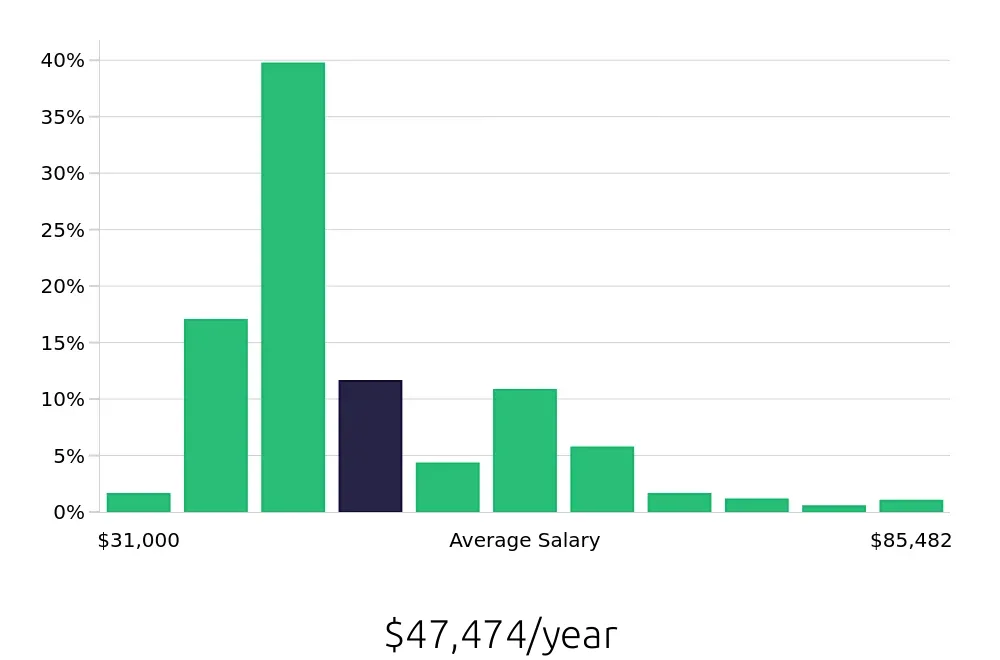Position
Overview
A Juvenile Detention Officer plays a key role in maintaining safety and order within a juvenile detention center. This role involves supervising young offenders, ensuring their safety, and upholding the rules of the facility. Officers must be vigilant and proactive in preventing any incidents that could endanger the well-being of the detainees or other staff members.
Detention officers also work closely with social workers, psychologists, and other professionals to develop and implement rehabilitation programs. They assist in organizing activities that help detainees develop positive habits and life skills. Officers must communicate effectively with detainees, offering guidance and support. They aim to create a structured environment where young individuals can reflect on their actions and work towards positive change.
Becoming a Juvenile Detention Officer involves several important steps. This role requires dedication and a strong commitment to the community. The following steps provide a clear pathway to achieving this career goal.
First, gain a high school diploma or equivalent. This is the foundational step. Most employers look for candidates with at least a high school education. After completing high school, the next step is to gain experience in law enforcement or a related field. Volunteering or working in this area can be beneficial. It offers insight into the daily duties and responsibilities of a Juvenile Detention Officer.
To move forward, complete a training program at a police academy or similar institution. These programs teach the necessary skills and knowledge for the job. After training, candidates must pass a background check and a drug test. These steps ensure candidates meet all safety and legal requirements. Finally, apply for the position and attend the interview. Prepare to showcase the skills and experience gained from previous steps.
The journey to becoming a Juvenile Detention Officer can vary in length. Most officers complete their education and training in two to four years. This process involves a mix of classroom study and practical experience. A high school diploma or GED is usually the starting point.
After high school, most officers attend a training academy. These programs last around four to ten weeks. They cover topics like law, safety procedures, and how to handle difficult situations. After completing the academy, officers often start with on-the-job training. This hands-on experience can take several months. It helps officers learn the specific rules and duties of their job.
We are seeking dedicated and compassionate Juvenile Detention Officers to ensure the safety, security, and well-being of our juvenile detainees. The ideal candidate will provide a secure environment, maintain order, and support the rehabilitation of young individuals in our care.
Responsibilities:
Qualifications
A career as a Juvenile Detention Officer offers a unique role in the criminal justice system. These officers work in facilities that house young offenders. They ensure safety and order. Their duties involve supervising detainees, conducting searches, and maintaining records. Working with juveniles provides a chance to impact young lives positively. Officers often find this role rewarding but challenging.
Choosing this path involves considering both the benefits and drawbacks. Here are some important points to ponder:
Job seekers interested in the role of a Juvenile Detention Officer can find a stable career path within this field. According to the Bureau of Labor Statistics (BLS), an average of 30,900 positions open each year. This role provides valuable work to manage and ensure the safety of detained youth. It is a rewarding career for those looking to make a difference in the lives of young individuals.
The outlook for Juvenile Detention Officers shows a slight decline in job openings. The BLS projects a 7.3% decrease from 2022 to 2032. Despite this change, the need for skilled officers remains. This role continues to be crucial in maintaining the safety and structure within juvenile detention facilities. Opportunities will still be available for those entering the field.
Compensation for Juvenile Detention Officers is competitive. The BLS reports an average national annual salary of $58,790. Hourly pay averages around $28.27. This salary reflects the importance and responsibility of the role. It also offers a fair wage for the work performed. Job seekers can expect both financial stability and personal fulfillment in this career path.
